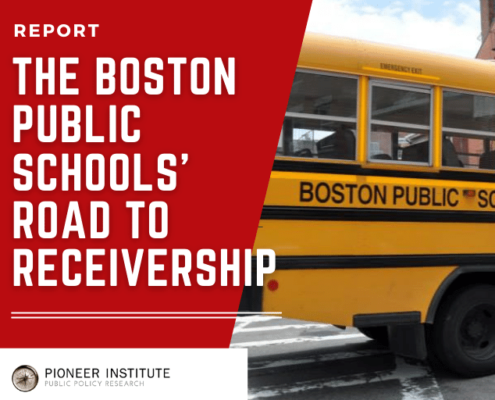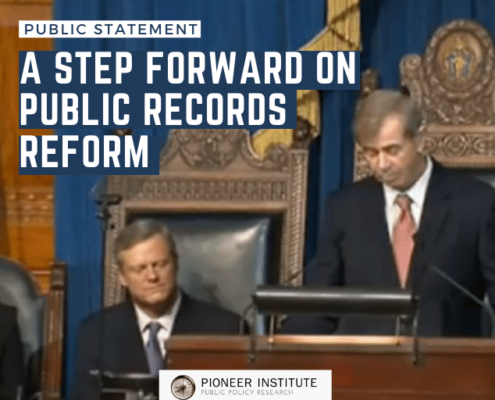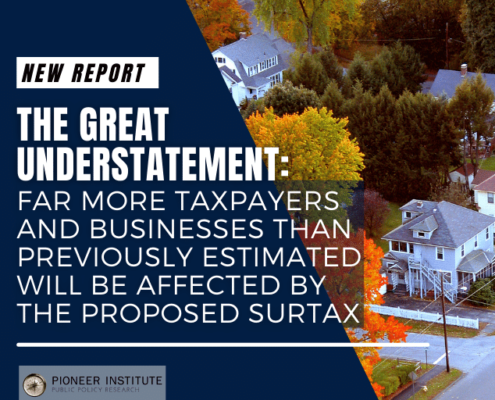A Bold New Agenda: Introducing Pioneer’s New Board Chair Adam Portnoy
/0 Comments/in Featured, News, Video /by Editorial StaffLast week, Pioneer Institute announced the appointment of Adam Portnoy, President and CEO of The RMR Group, as new Chair of our Board of Directors, succeeding Stephen D. Fantone, who recently stepped down after eight years of dedicated service. We are excited about this new stage in Pioneer’s development, and want to introduce Adam to all of you, our supporters.
In the video below, Adam shares thoughts on what inspired him to become more involved in Pioneer’s work, highlighting the Institute’s data-driven, forward-focused approach to advancing policy solutions and creating more opportunities for all. He also offers his vision for the future, building our community of supporters and increasing our public interest law activities to strengthen our policy impact – which is the core of the Institute’s new Pioneer2024 strategic plan. We hope you enjoy this chance to get to know Adam and hear his message!
Join us as we embark on this ambitious new agenda! Learn about membership opportunities.
Stay Connected!

Study Finds Continued Growth in Education Tax-Credit Scholarship Programs

Massachusetts Hospitals Pull Back on Charity Care as Revenue from Federal 340B Drug Discount Program Explodes

Study: Legislature Likely to Reduce Spending on Education and Transportation from Other Revenue Sources, Replace Cuts with Surtax Money

Study Recommends State Receivership for Boston Public Schools

New Pioneer Institute Law Center to Focus on Educational Opportunity, Economic Freedom, and Accountable Government

New Study Shows What Works for Civics Education

Study Finds Bus Rapid Transit Can Offer Cost-Effective Benefits

Pioneer Institute Applauds Secretary Galvin’s Legislation to Subject Governor’s Office to Public Records Law, Calls for End to Legislative Exemption

Pioneer Supports Legal Challenge to Misleading Tax Ballot Language, Releases Video

Study Finds Massachusetts Would Benefit from Adopting Education Savings Accounts

Study Raises Concern That Annual T Fare Evasion Costs Could Rise By More Than $30 Million Under AFC 2.0




